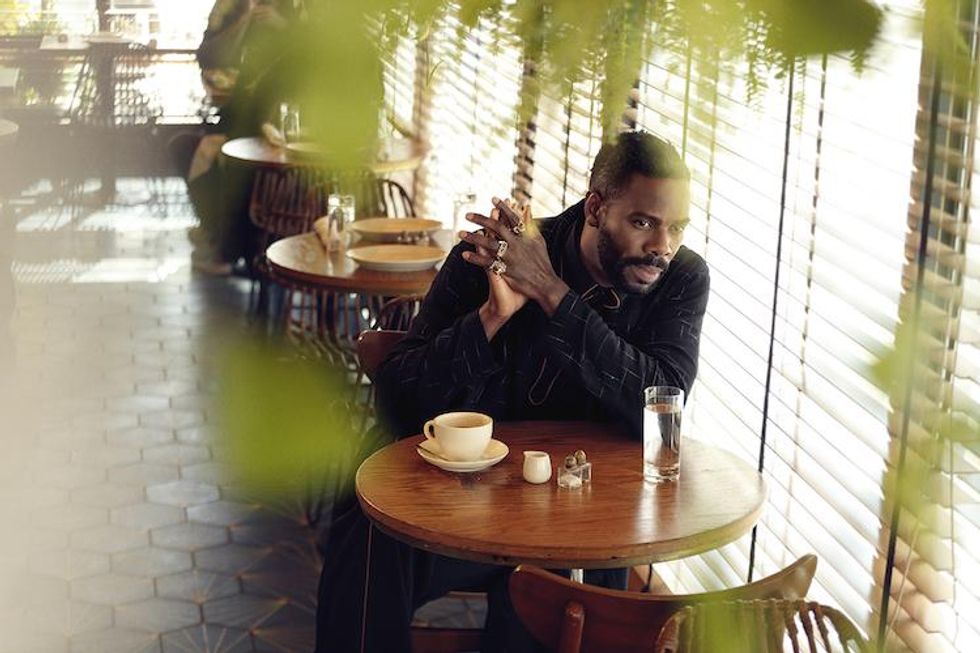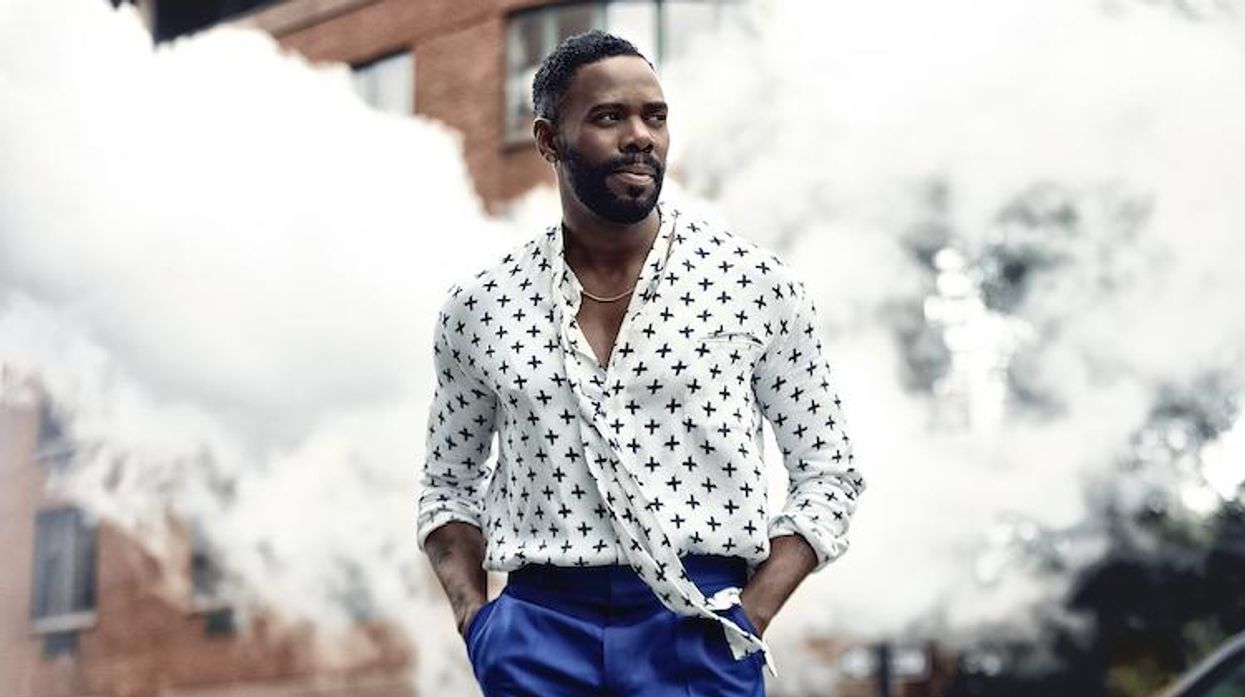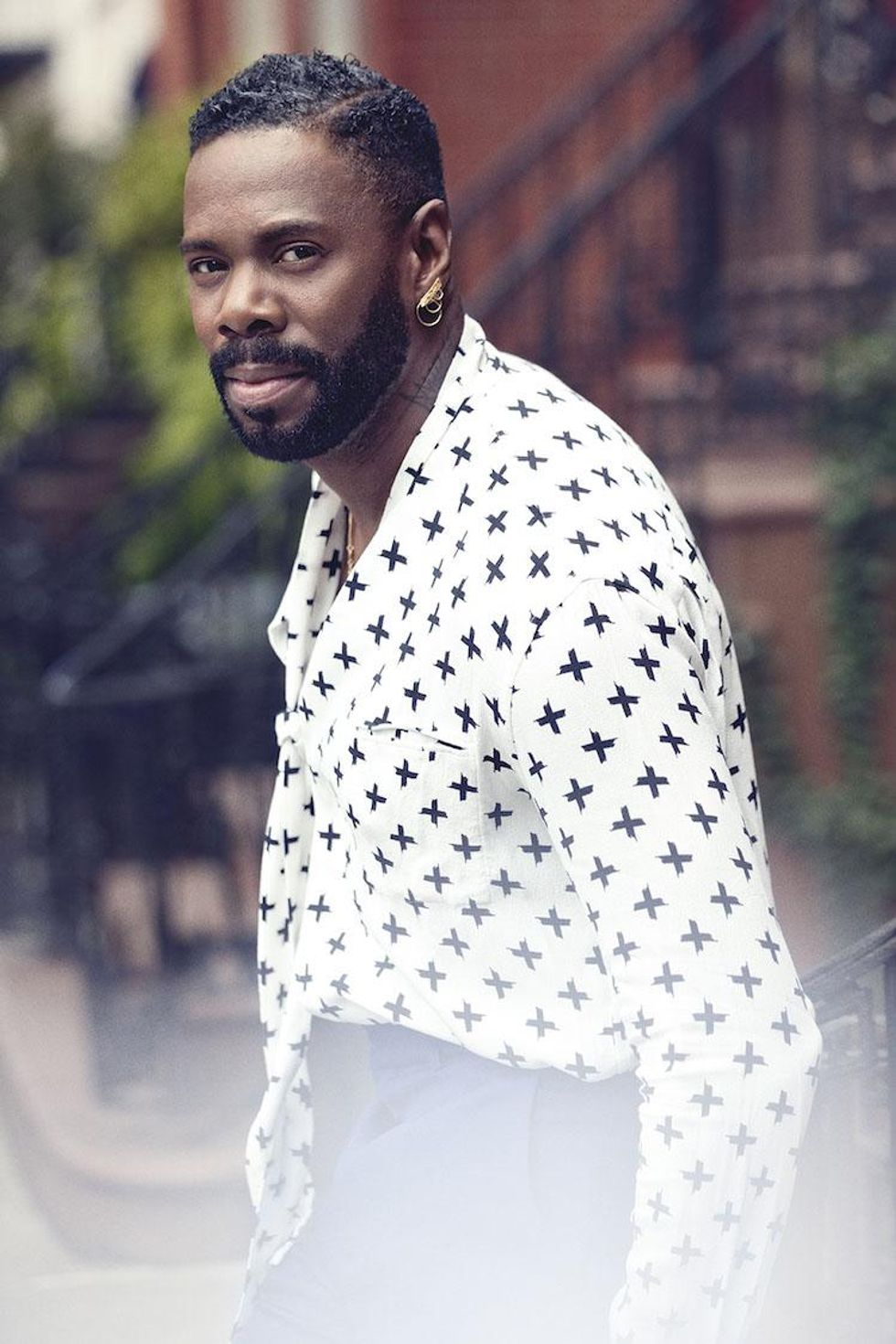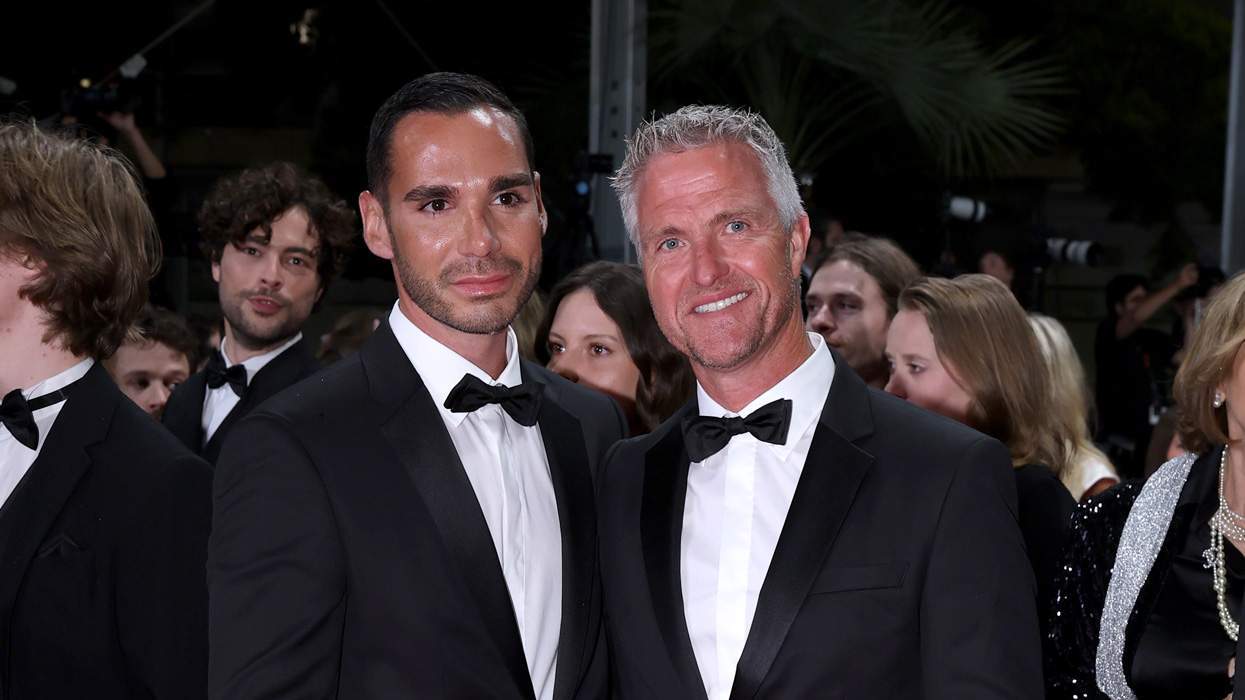If we continue to progress toward a future where marginalized people are enabled to tell their own stories, particularly in media and entertainment, then Barry Jenkins is a storyteller who's been ahead of the curve.
In the summer of 2013, five years after the release of his breakout indie Medicine for Melancholy, the writer-director was simultaneously developing two scripts. The first was Moonlight, Jenkins's collaborative adaptation of Tarrell Alvin McCraney's play In Moonlight Black Boys Look Blue, about a gay black man hustling through three torrid stages of life. The second was If Beale Street Could Talk, Jenkins's take on James Baldwin's 1974 novel about a young black woman in 1970s Harlem who's pregnant with the child of her wrongfully imprisoned lover.
Moonlight, as much of the world knows, was a radical achievement--a film that was not only queer, but consummately, unapologetically black, without any on-screen infiltration by white actors. Its critical success may have been expected, but even for the least-jaded cinephile, its being awarded 2016's Oscar for Best Picture was a norm-shattering shock and inspired hope that a REFRESH button had been hit.
In some ways, Beale Street (in theaters November 30), with its depiction of black love, is even more radical. There are white faces among its cast, but they are few. One is a cop, who reminds us that 40 years have yielded next to no progress in dismantling systemic police racism. Another is a lawyer whose key scene sees him educated on how to properly address the locked-up father-to-be.
If Beale Street has, in any way, been made for white audiences, it is for their education. As celebrated as Jenkins may be, it's audacious for him to have chosen to adapt the rich work of James Baldwin. For long stretches, characters are simply shown living--holding each other, holding space-- just as they do in Baldwin's pages. They are not on the screen to entertain but rather to be seen, by white viewers for whom that particular existence might not be normal, and by black viewers for whom that existence, particularly, is.

Domingo, a gay, black actor-writer-director with a vast wealth of TV, film, and stage credits to his name (from Passing Strange and The Scottsboro Boys to Selma and The Birth of
a Nation), describes Jenkins's approach to filmmaking as "wildly emotional." He says
that Beale Street is "smashing tropes of what we've seen and witnessed in the cinema for ourselves and for white folks. And not even with a sledgehammer. It's throwing in so much grace."
Born and raised in West Philadelphia (yes, he went to high school with Will Smith), Domingo found his own grace in fleeing to San Francisco to explore nudist camps and astrology, arriving in New York to build a decorated career, and marrying a man with whom he now owns a home in Los Angeles. But first, he found James Baldwin.
How old were you when you first encountered Baldwin's work?
I was 17. The first thing I read was Giovanni's Room and then I read The Fire Next Time. He is our modern-day Shakespeare. He interrogates things that are deeply personal to me--about America, about brotherhood, about love, and about how we move forward. I wanted to know how to navigate this world and he offered me lessons. When you're stepping out as an artist, as a black gay man, and as an intellectual, you're looking for someone who's done it before and who's wrestled with the same things. Even now, I carry his work around in my pocket.
Tell me more about why Baldwin is important to you right now.
He speaks to my soul when I'm wrestling with the things I'm trying to figure out. Again, how do we move forward? How do we find the light in all this darkness? How do we look at history and examine who we are in white and black America? He gives you words when your mouth is hanging open every day as you watch the news. He helps you redefine or realize why things are the way they are. Why things haven't been dealt with when it comes to race and culture and oppression. Why Americans are all about the money and less about the human. He gives words to it so you can say, "Okay, I'm not alone in this." James Baldwin makes me feel like I'm not alone.
How else do you feel that Beale Street, the film, normalizes black experience?
It doesn't suffer the tropes that you usually see in other films about black womanhood, where they're all being strong and sassy and running things. It's about ordinary people doing extraordinary things within the means that they can do them, which I think is revolutionary. Joseph Rivers, my character, is not a showy man in any way. He's not a leading- man character; it's a supportive role, but it's not a character we usually see in films about African Americans. In most representations, there's a hardness to us. But here we have scenes where two men can be unapologetic and not be afraid to be affectionate with each other. We have brotherhood and sisterhood. The more we see images like that, the more it'll make a larger impression.
Tell me about your chemistry with Regina King, who plays your wife in the film.
The moment I met Regina, I knew she was my wife and I was her husband. There was no, "How are we going to do this?" We were open to dancing with each other, and there's a scene in which we literally are. We were taking in the spirit of the room, and we became that family. Barry threw the cameras on. He watched this thing happening, this organic thing. He made sure the camera was running and captured it. It's in the film now. It was one of those moments when I honestly felt like it was something...else. It was the spirit of everything--of the way Baldwin wrote those characters and all the love in that house. And in that small moment you saw what our leading lady, Tish, was built of. You know why she is the way she is and why she's strong and passionate.
How can artists and filmmakers further improve representation like this?
We have a responsibility to, as much as possible, get on the other side of the camera as directors, producers, financiers, studio heads, you name it. Because that's the only way we're going to make any changes. There are changes being made, but we also have to look at who's writing this material. I'm very critical, especially about stories from our experience as black, gay, and other. I'm not someone who settles just because there's representation there. More can be done. Let's not just take what's been given, let's also question it at times. Are we telling the stories the way we can best tell them and in the most complex ways? I want to make sure we are, and I'm going to help push it, whether it's from the outside or the inside. We should be doing all we can so it's about serving our communities--artfully, thoughtfully, and respectfully.






























I watched the Kid Rock Turning Point USA halftime show so you don't have to
Opinion: "I have no problem with lip syncing, but you'd think the side that hates drag queens so much would have a little more shame about it," writes Ryan Adamczeski.